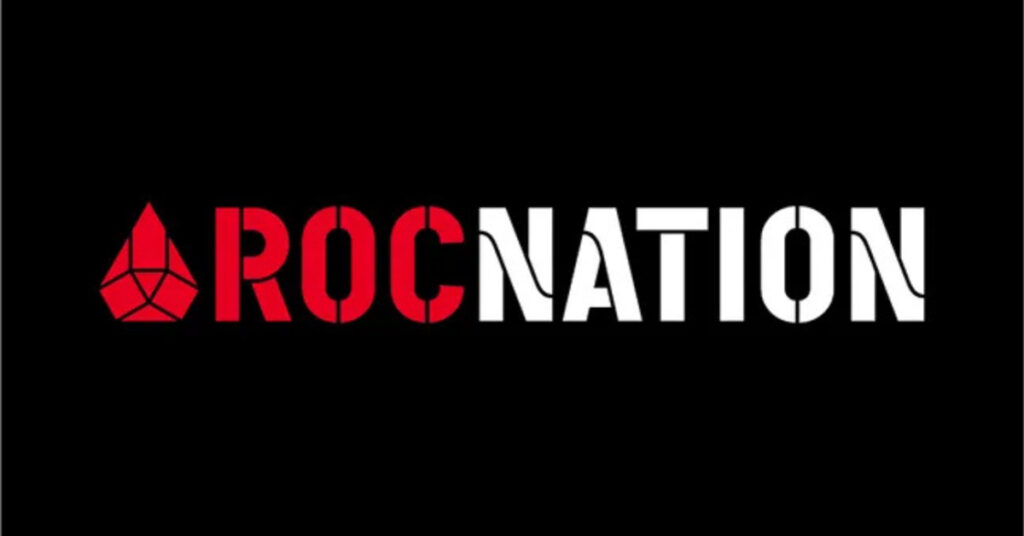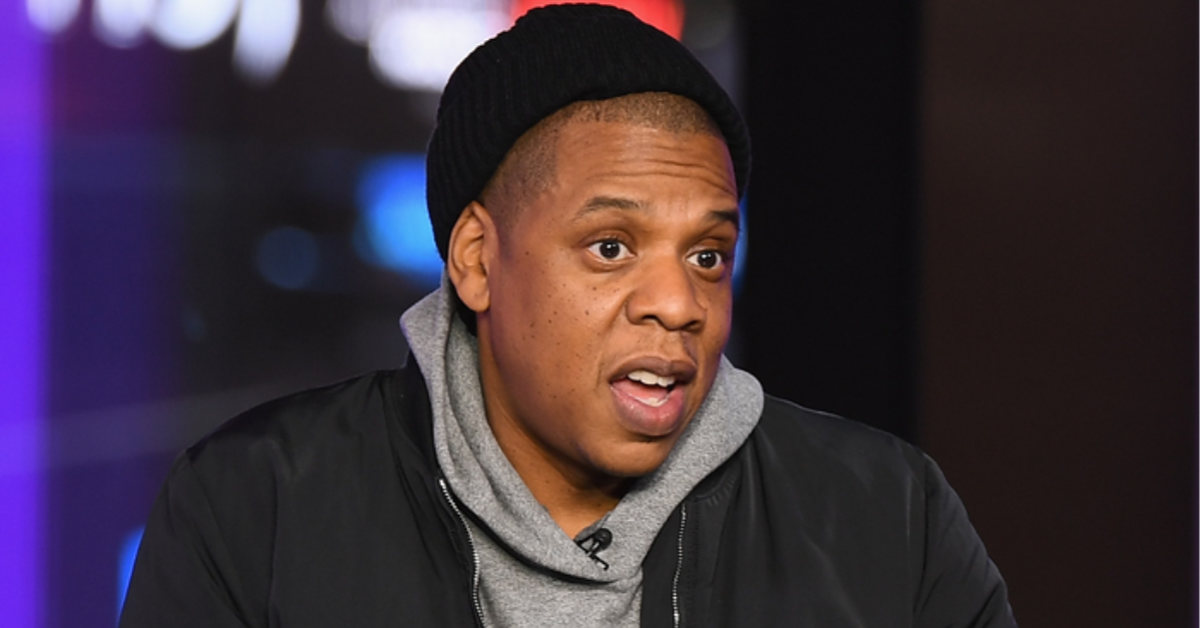On a summer night in Brooklyn in the early ’90s, a young Shawn Carter could look out from the rooftops of the Marcy Projects and see nothing but possibility—and hustle. Decades later, that same man, now known to the world as Jay-Z, signs billion-dollar partnerships in glass-walled boardrooms overlooking Manhattan. The distance between those two rooftops—the cracked concrete of Marcy and the skyline suites of Roc Nation—isn’t just geographic. It’s a blueprint for how ambition, ownership, and culture can build a new kind of billionaire empire.
Jay-Z’s Roc Nation story is more than the tale of a record label. It’s the story of how hip-hop transformed from street corners into a global boardroom, reshaping what cultural capital means in the 21st century. He didn’t just rap about hustling; he turned those principles into a diversified business empire that touches music, sports, luxury brands, and philanthropy.
This article isn’t a checklist of investments. It’s an exploration of how one artist leveraged lyrics, leverage, and legacy to create a conglomerate that rivals Silicon Valley founders and Wall Street titans. From Marcy to mogul, Jay-Z proves that culture—when owned and scaled—becomes commerce.
How Did Jay-Z Start Roc Nation?
In 2008, Jay-Z made a move that signaled he was no longer content being just a chart-topping artist. He signed a landmark $150 million deal with Live Nation—at the time, one of the boldest partnerships in the music industry. Out of that deal was born Roc Nation, a company designed not just to manage artists but to redefine what an entertainment brand could be.
For Jay-Z, it wasn’t about leaving music behind; it was about expanding its reach. He had already conquered the charts and sold millions of albums, but Roc Nation gave him something bigger: ownership. “I’m not a businessman, I’m a business man,” he once quipped—a line that feels like the mission statement behind the venture. Roc Nation was his way of turning that lyric into a living, breathing institution.
What began as an artist-first label quickly evolved into a multi-pronged entity, managing musicians, athletes, and brands under one umbrella. The vision was clear: empower talent, own equity, and control the cultural narrative rather than renting it. For fans who had followed Jay-Z from Marcy to Madison Square Garden, Roc Nation wasn’t just another deal—it was the blueprint of his mogul era.
What Does Roc Nation Actually Do?
If you thought Roc Nation was only about signing rappers, think again. Jay-Z built it as a full-service entertainment company, a kind of cultural hub that stretches far beyond music charts. At its core, Roc Nation manages talent—but the definition of “talent” here is expansive.
In music, the company works with artists across genres, offering management, publishing, touring, and even label services. But the vision didn’t stop there. Roc Nation Sports, launched in 2013, represents athletes like Kevin De Bruyne and Skylar Diggins-Smith, bringing the same ownership-first philosophy to the sports world.
Philanthropy also sits at the center. Through Team Roc, the company engages in social justice campaigns, criminal justice reform, and community programs—proof that its influence isn’t just commercial, it’s cultural.
For a quick snapshot, here’s how the Roc Nation empire breaks down:
- Music: Artist management, publishing, touring, label services
- Sports: Athlete representation and branding deals
- Philanthropy: Social justice and community programs
- Media & Partnerships: Strategic collaborations with global brands
Think of Roc Nation less as a label and more as a modern-day conglomerate, shaping the intersection of culture, commerce, and conscience.
Why Did Jay-Z Create Roc Nation Sports?
When Jay-Z launched Roc Nation Sports in 2013, it surprised some industry insiders—why would a hip-hop mogul step into athlete management? The answer lies in the same philosophy that drove his music career: ownership and empowerment.
Athletes, much like musicians, often found themselves tied to contracts that limited their financial upside and brand control. Jay-Z recognized the parallels. By creating Roc Nation Sports, he offered athletes what he had long championed for artists: the chance to be more than performers, to become owners of their narratives.
The roster quickly proved the vision wasn’t a gimmick. NBA star Kevin Durant and WNBA standout Skylar Diggins-Smith signed on, lending instant credibility. For them, Roc Nation wasn’t just about negotiating contracts—it was about shaping global brands, securing endorsement deals, and aligning their careers with cultural influence.
“Sports and music are so connected, we wanted to offer athletes the same opportunities we offer artists,” Jay-Z said at the launch. In essence, Roc Nation Sports was never just about managing athletes. It was about rewriting the playbook of power, bringing hip-hop’s ownership ethos onto the world’s biggest courts and fields.
How Does Jay-Z Make Money Outside Music?
Jay-Z hasn’t needed a mic to make money for decades. While music gave him his platform, his fortune now flows from a portfolio that looks more like a Wall Street investor’s than a rapper’s. He co-owns D’Usse cognac, sold a majority stake in his Armand de Brignac champagne to LVMH, flipped Tidal into a major streaming acquisition deal with Square (now Block), and cashed in early as an Uber investor.
Each move shows the shift from hip-hop hustle to luxury champagne mogul, from the studio to the boardroom. Forbes has pegged his net worth at well over $2.5 billion, and much of that comes from Jay-Z’s businesses rather than record sales. It’s the blueprint of diversification: music as the door-opener, equity as the legacy. His Roc Nation story proves that in today’s entertainment economy, owning assets is the real chart-topper.
What Is Jay-Z’s Business Strategy?
Jay-Z’s business strategy can be summed up in one word: ownership. From his earliest days, refusing to sign a restrictive record deal, he’s insisted on keeping control of his work—and later, his companies. Instead of chasing quick paychecks, he negotiates for equity. When he partnered with Samsung to release Magna Carta Holy Grail, for example, he wasn’t just selling albums; he was leveraging corporate dollars to create guaranteed profit.
For an ambitious entrepreneur, the lessons are clear:
- Equity over salary. As Forbes once put it, “Jay-Z doesn’t just participate in markets, he buys a piece of them.”
- Leverage culture into commerce. He turns influence—whether in champagne, streaming, or sports—into scalable businesses.
- Diversify without diluting. From Tidal to D’Usse, each venture reinforces his brand of aspirational luxury.
Observers in Harvard Business Review have noted that Jay-Z treats himself as both an artist and a corporation, blurring the line between cultural product and business entity. It’s not theory; it’s a lived playbook. For young founders, his story is less about music and more about mindset: don’t just take the deal—own the table it’s signed on.
Roc Nation’s Biggest Deals and Partnerships
Some of the most talked-about Roc Nation deals weren’t just about money — they shifted culture. The story begins in 2008 with the groundbreaking $150 million Roc Nation–Live Nation agreement, which didn’t just fund a label but built an empire, setting a precedent for artist-led companies negotiating on equal footing with corporate giants.
Fast forward to 2019, when Roc Nation struck a headline-making partnership with the NFL. The deal gave Jay-Z and his team influence over the league’s entertainment programming and social justice initiatives. While controversial, it positioned Roc Nation as a bridge between music, sports, and activism—an arena few entertainment companies could enter with authority.
Then there’s fashion: Beyoncé’s Ivy Park x Adidas line, supported by Roc Nation’s branding machine, became a global case study in artist-driven merchandising. Add in brand partnerships with companies like Puma and Pepsi, and you begin to see the scale.
A timeline graphic of these milestone deals would reveal the through-line: Roc Nation doesn’t chase one-off contracts. It brokers cultural moments where commerce and influence intersect—shaping how artists, athletes, and even leagues see their power in the modern economy.
How Roc Nation Shapes Culture Beyond Music
Roc Nation doesn’t just book tours — it wades into the fight for justice. Through its philanthropic arm, Team Roc, the company has become a force in social impact, tackling issues from criminal justice reform to educational equity. In recent years, Team Roc has funded legal battles for wrongfully convicted prisoners, pressured local governments on police accountability, and even run full-page ads calling for systemic change.
This is where Jay-Z’s empire stretches beyond profit. “We’re using our platform to amplify voices that have long been ignored,” Roc Nation once declared in a statement. Activists have noted that few entertainment companies leverage their cultural weight so directly in politics and community impact.
For fans and critics alike, Roc Nation’s social justice work proves it isn’t simply an entertainment company. It’s a cultural player shaping narratives of fairness, responsibility, and reform — in boardrooms and in the streets.
Jay-Z vs. Other Music Moguls
Who really built the bigger empire: Jay-Z, Diddy, Dr. Dre, or Rihanna? Each has transformed fame into fortune, but their paths reveal different playbooks. Jay-Z’s Roc Nation story is built on diversification—spanning music, sports, luxury brands, and tech. Diddy carved his fortune around Cîroc vodka and Revolt TV. Dr. Dre took the Beats by Dre route, selling to Apple for billions. And Rihanna’s Fenty Beauty, now a global juggernaut, reshaped the beauty industry.
Forbes rankings frequently place Jay-Z at the top of the richest rappers list, but Rihanna’s $1.4 billion Fenty valuation shows she’s not far behind. The real takeaway? Each mogul turned cultural capital into commercial dominance, but Jay-Z’s breadth—Roc Nation, champagne, streaming, real estate—gives his empire a uniquely global scope.
| Mogul | Core Industry | Billion-Dollar Play |
| Jay-Z | Music, Sports, Luxury | Roc Nation, Armand de Brignac, Tidal |
| Diddy | Music, Media | Cîroc, Revolt TV |
| Dr. Dre | Music, Tech | Beats/Apple deal |
| Rihanna | Music, Beauty | Fenty Beauty |
What Role Does Beyoncé Play in Jay-Z’s Business Empire?
Beyoncé isn’t simply part of Jay-Z’s story—she’s an empire-builder in her own right. Through her company Parkwood Entertainment, she’s produced films, managed artists, and overseen her own music catalog. Her Ivy Park athleisure line, once partnered with Adidas, became a global fashion statement and a revenue driver. Together, she and Jay-Z have turned their brand into a power-duo economy.
Their joint real estate portfolio—spanning a $200 million Malibu mansion, a Bel-Air estate, and homes in New York—cements their strategy of diversifying into cultural assets that appreciate over time. As Forbes has noted, their combined net worth is well past $2.5 billion, making them one of the wealthiest celebrity couples in history.
Framed this way, Beyoncé isn’t an accessory to Jay-Z’s Roc Nation story. She’s a co-architect. Together, their ventures amplify each other, proving that their partnership is as much about legacy-building as it is about love.
How Has Roc Nation Changed the Music Industry?
Why do artists sign with Roc Nation? The answer lies in how the company rebalanced power between talent and labels. Traditional 360 deals often locked artists into restrictive contracts, with labels taking oversized cuts. Roc Nation flipped that script by emphasizing management, equity, and long-term growth.
Take Rihanna, who aligned with Roc Nation and expanded her career beyond music into fashion and beauty. Or J. Cole, who built Dreamville under Roc Nation’s wing while still retaining creative control. These stories reveal Roc Nation’s impact: it isn’t just about releasing records—it’s about building platforms for artists as entrepreneurs.
By fusing management with brand partnerships, publishing, and global tours, Roc Nation offered a new model for what an entertainment company could be. Its artist deals signaled a shift away from control and toward empowerment, reshaping the industry one career at a time.
What Challenges Has Roc Nation Faced?
It hasn’t all been champagne and boardrooms. Roc Nation has weathered its share of controversies, some of which tested the very credibility Jay-Z worked to build. The 2019 NFL partnership drew heavy backlash from activists and fans who felt it clashed with Colin Kaepernick’s protest movement. Critics argued Jay-Z had “sold out” social justice for access to the league’s stage.

Then there was Tidal. Launched with superstar backing, the streaming service promised artist ownership but struggled to compete with Spotify and Apple Music. Headlines about inflated subscriber numbers dented its reputation, even as Jay-Z eventually sold a majority stake to Jack Dorsey’s Square (Block).
Add in the natural churn of artists leaving Roc Nation’s roster, and the picture is clear: building a global entertainment company comes with turbulence. Yet, as Billboard noted, Jay-Z has shown a knack for turning setbacks into pivots—proof that resilience is as central to his empire as vision.
How Does Jay-Z Inspire Entrepreneurs Worldwide?
What makes Jay-Z a successful businessman isn’t just the billions—it’s the mindset behind them. He’s become a case study in how vision, resilience, and ownership can turn hustle into a legacy. As someone who’s read Decoded, I remember being struck by how he framed failure not as defeat but as data: learn, pivot, try again. That mentality resonates far beyond hip-hop.
Entrepreneurs across industries point to him as proof that cultural influence can scale into global business. Rihanna and J. Cole have credited Roc Nation’s model for giving them freedom to build empires of their own. Even outside music, founders cite Jay-Z’s ownership-first philosophy—whether in startups, real estate, or luxury branding—as a blueprint.
The stats back it up: Forbes consistently lists him as hip-hop’s first billionaire, with more than half his net worth coming from non-music ventures. For many, that’s the entrepreneurial lesson from Jay-Z—don’t just cash the check. Own the equity, shape the culture, and build something that lasts longer than the spotlight.
Jay-Z inspires not because he made it out of Marcy Projects, but because he shows that anyone with vision and persistence can rewrite the rules of business.
Take on Jay-Z’s Business Legacy
I remember standing in a packed arena, the bass thundering as Jay-Z launched into Empire State of Mind. The crowd wasn’t just singing along—they were reciting a mantra, word for word. Later that night, I spotted a bottle of Ace of Spades being carried through the VIP section like a trophy, its gold casing catching the light. In that moment, it hit me: this wasn’t just music, it was a lifestyle he’d built, one that extended from the stage to the champagne flutes.
Jay-Z’s genius is that he doesn’t separate the art from the enterprise. When you attend his concert, you’re also brushing up against his brands, his vision, his empire. That seamless blend of culture and commerce is why his influence feels larger than a balance sheet. For me, watching the roar of that crowd and the gleam of that bottle said more than any Forbes ranking could: Jay-Z turned hustle into heritage.
Jay-Z as the Blueprint for the 21st Century Mogul
Jay-Z’s empire is more than a business portfolio; it’s a cultural architecture. From Roc Nation to Armand de Brignac, from sports representation to multi-million-dollar homes, he’s turned every arena he steps into into an extension of his brand. Even philanthropy, through Team Roc, fits the blueprint—proof that influence isn’t measured only in dollars but in the ability to shape conversations and communities.
What makes his legacy resonate isn’t just scale, but vision. He understood earlier than most that culture itself is currency, and that whoever owns it, defines it. In doing so, Jay-Z blurred the line between artist and CEO, showing that music can be the seed for an empire spanning industries and generations.
Jay-Z didn’t just build Roc Nation — he built the playbook for turning culture into commerce. And in the 21st century, that may be the most valuable blueprint of all.
Nishant Wagh is the founder of The Graval and a seasoned SEO and content strategist with over 15 years of experience. He writes with a focus on digital influence, authority, and long-term search visibility.














